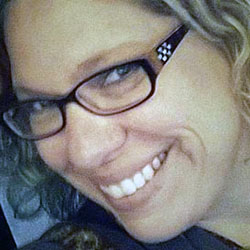Water Safety & Swimming: A Lifeline for Neurodivergent Kids
May 23, 2025
By Sandy Karlek, She/Her, Owner of Nurturing Water Therapies
Swimming is an essential life skill, especially for neurodivergent children who face an extremely high risk of drowning. Research shows they are 160 times more likely to die from drowning than their neurotypical peers. This risk underscores the need for early and adaptive swim instruction to prevent tragic accidents.
According to the National Autism Association, drowning accounts for 90% of deaths in neurodivergent children who wander. Nearly 50% of neurodivergent children attempt to elope, a rate four times higher than other children. Teaching swimming skills isn’t just about recreation — it’s about survival.
The Centers for Disease Control and Prevention (CDC) reported in 2020 that 1 in 54 children in the U.S. is diagnosed as neurodivergent, based on 2016 data. However, this number doesn’t account for children with sensory, communication, behavioral, or physical challenges — many of whom also struggle with water safety. Since founding Nurturing Water Therapies six years ago, I’ve witnessed a growing demand for specialized swim instruction, helping individuals of all abilities gain confidence and security in the water.
Water has always been a place of healing and growth for me. As a child, I thrived in the pool — joining swim teams, training as a lifeguard, and later working with physical therapists to develop aquatic exercise programs for seniors. But it wasn’t until I became a mother that I truly understood its transformative power. After adopting two boys from Ethiopia, my partner and I received an urgent call about a severely malnourished 18-month-old girl in need of immediate medical care. When she came home, she faced overwhelming health challenges — chronic infections, febrile seizures, and severe developmental delays. Feeling helpless, I turned to what I knew best: the water.
Slowly, gently, I introduced her to the pool. In the water, her body felt supported, her muscles strengthened, and she found a sense of calm. That experience reshaped my life and solidified my passion for helping others through aquatic therapy.
Dr. Guohua Li, a professor at Columbia University, emphasizes that “swimming ability for neurodivergent kids is an imperative survival skill.” He advocates for lessons as early as possible — even before other therapies — due to the life-threatening risks of drowning. Water can also provide unique benefits: for children with auditory sensitivities, it muffles overwhelming sounds, and for many, the water’s pressure delivers a calming sensory experience.
Beyond safety, swimming offers lifelong fitness benefits and fosters self-confidence and inclusion. It provides a space where neurodivergent individuals can develop physical strength, coordination, and emotional regulation in a controlled, supportive environment.
My daughter’s journey in the water was one of resilience and transformation, and I’ve since seen the same growth in so many of the neurodivergent children I work with. Each small step in the water translates to a big step in life. Overcoming challenges — one day, one lesson at a time — can be truly life-changing.
To help turn these tragic statistics around and focus on saving lives, we’ve created a brief, one-hour water safety course available on our website. It’s designed for parents, caregivers, and anyone working with neurodivergent children. As we head into summer, I encourage everyone to take the time to learn these essential skills. Together, we can create safer, more inclusive spaces in and around the water.
About the author
 Sandy has a BA in Communication/Recreation and is certified in Aquatic Therapy, Exercise Therapy and numerous certifications. Sandy is committed to staying informed on the evolving needs of her clients, and continually seeks out training on how to best support and work with neurodivergent individuals and those with diverse abilities in the water. providing specialized and supportive care for each individual client. She has over 35 years of experience in aquatics working with a diverse group of clients, across all ages, with various congenital or acquired health challenges. With a neurodivergent child of her own, she also has firsthand experience in behavioral, sensory and developmental challenges. Sandy’s innovative water-based therapy, water safety techniques, and exercise programs are individually created to best fit the needs of each individual.
Sandy has a BA in Communication/Recreation and is certified in Aquatic Therapy, Exercise Therapy and numerous certifications. Sandy is committed to staying informed on the evolving needs of her clients, and continually seeks out training on how to best support and work with neurodivergent individuals and those with diverse abilities in the water. providing specialized and supportive care for each individual client. She has over 35 years of experience in aquatics working with a diverse group of clients, across all ages, with various congenital or acquired health challenges. With a neurodivergent child of her own, she also has firsthand experience in behavioral, sensory and developmental challenges. Sandy’s innovative water-based therapy, water safety techniques, and exercise programs are individually created to best fit the needs of each individual.